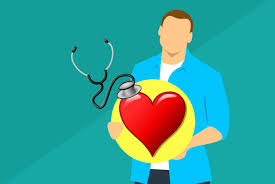The human heart functions as the central organ of the circulatory system, keeping the body alive by pumping blood and supplying oxygen to tissues. When heart-related issues arise, cardiologists play a key role in identifying, managing, and treating these conditions. Their expertise spans various diagnostic methods, specialized services, and treatment modalities, aiming to improve heart health.
What Is a Cardiologist?
A cardiologist is a medical professional specializing in diagnosing and treating heart-related conditions. Their expertise extends to the cardiovascular system, which includes the heart and blood vessels. They play a key role in monitoring heart health, managing heart diseases, and assisting with preventive measures to reduce the risks of severe heart complications.
What Services Do They Offer?
Cardiologists provide a variety of services aimed at evaluating and maintaining heart health. These services can include diagnostic testing, medical consultations, preventive care, and treatment plans for a wide range of heart conditions. Diagnostic testing commonly involves tools such as electrocardiograms (ECGs), echocardiograms, and stress tests to evaluate the heart’s electrical activity, structural health, and response to physical exertion.
Preventive care features prominently in cardiology practice. Cardiologists may advise on lifestyle modifications such as healthier diets and increased physical activity. They oversee ongoing medical treatment in cases of chronic conditions like hypertension and high cholesterol. This makes sure that complications are minimized and patients have better outcomes.
What Are Common Heart Conditions?
Heart conditions affect individuals across age groups, and cardiologists are trained to address a spectrum of these issues. Some common heart conditions include:
- Coronary artery disease (CAD): Narrowing or blockage of the coronary arteries, often due to plaque buildup
- Arrhythmias: Irregular heart rhythms, which can manifest as tachycardia (fast heart rate) or bradycardia (slow heart rate)
- Heart failure: A chronic condition where the heart doesn’t pump blood as well as it should
- Congenital heart defects: Structural abnormalities present since birth
- Cardiomyopathy: A disease of the heart muscle, leading to difficulty in pumping blood
These conditions may present with symptoms such as chest pain, shortness of breath, or fatigue. Early detection and treatment by a cardiologist may lead to better outcomes.
How Do Cardiologists Diagnose Heart Conditions?
Diagnosing heart conditions often begins with a detailed patient history and physical examination. Cardiologists will review a patient’s medical background, family history, and symptoms to identify attributes that may indicate an underlying heart issue. Tools like electrocardiograms (ECG) are frequently used to detect abnormalities in the heart’s electrical activity, while echocardiograms use ultrasound imaging to evaluate the heart’s structure and motion.
For more complex conditions, advanced imaging techniques such as cardiac MRIs or CT scans may be utilized to provide a detailed view of the cardiovascular system. Stress tests are also common diagnostic tools, enabling cardiologists to assess how the heart performs under physical exertion. Blood tests may accompany these procedures to detect biomarkers indicative of conditions like high cholesterol or inflammation.
Seek a Diagnosis Today
Understanding how cardiologists identify and manage heart conditions provides valuable insight into heart health. Cardiologists help patients address acute and chronic issues through careful diagnostics and tailored treatment plans, fostering a better quality of life. Consulting a specialist can offer clarity if you notice symptoms or have a family history of heart-related conditions. Take the first step toward better health by seeking a diagnosis today.
- mylovelyfurryfriend discover expert tips on dog health
- Infectious Diseases Updates – Stay Informed, Stay Protected!
- Wegovy For Weight Loss – A Breakthrough in Managing Obesity!
- Emergency Medicine Forum – A Hub for Fast-Paced Knowledge, Support & Updates!
- Pediatrics Discussions – Insights, Challenges, and Expert Advice for Better Child Health!





Leave a Reply